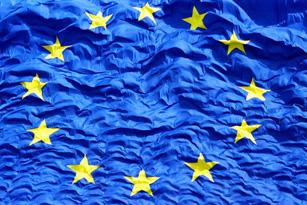
Brussels, 25 March 2015
In a set of annual reports adopted today, the European Commission and the High Representative of the European Union for Foreign Affairs and Security Policy assessed the implementation of the European Neighbourhood Policy (ENP) with the 16 partner countries in the East and the South and made recommendations for the year ahead. 2014 saw the signing of association agreements with Georgia, the Republic of Moldova and Ukraine, democratic transition in Tunisia and strengthened relations with Morocco. Nevertheless, conflicts and crises, involving security and humanitarian problems, persisted in both the east and south, especially in the form of terrorist threats and attacks. Significant support was mobilised by the EU to help Lebanon and Jordan cope with the increasing effects of the Syria crisis.
Speaking on the occasion of adoption of the European Neighbourhood Package, High Representative of the Union for Foreign Affairs and Security Policy/ Vice-President of the European Commission Federica Mogherini said:
"2014 was a year of major challenges: armed conflicts in Ukraine, atrocities and human rights violations by terrorist groups in the Middle East and in North Africa, and the Israeli-Palestinian conflict. Increased irregular migration and trafficking of human beings to Europe have been one of the direct consequences of the crises. These developments have been a test for the European Neighbourhood Policy. In this crucial time, the EU is determined to step up its engagement with our partners across the region on political, economic and security cooperation".
EU Commissioner for European Neighbourhood Policy and Enlargement Negotiations, Johannes Hahn, underlined the importance of the Neighbourhood Policy for the Union, and the ongoing review of the Neighbourhood Policy:
"The political assessments and economic evaluations, and the conclusions drawn in the 2014 ENP reports published today will assist the European Union in evaluating its approach towards the region as a whole. We are currently consulting widely on the way ahead for this policy[1] with a view to developing more effective ways of working with these key partners for the benefit of the EU and our neighbours themselves".
ENP – country reports[2]:
Armenia: http://europa.eu/rapid/press-release_MEMO-15-4689_en.htm
Azerbaijan: http://europa.eu/rapid/press-release_MEMO-15-4688_en.htm
Egypt: http://europa.eu/rapid/press-release_MEMO-15-4687_en.htm
Georgia: http://europa.eu/rapid/press-release_MEMO-15-4686_en.htm
Israel: http://europa.eu/rapid/press-release_MEMO-15-4685_en.htm
Jordan: http://europa.eu/rapid/press-release_MEMO-15-4684_en.htm
Lebanon: http://europa.eu/rapid/press-release_MEMO-15-4683_en.htm
Moldova: http://europa.eu/rapid/press-release_MEMO-15-4682_en.htm
Morocco: http://europa.eu/rapid/press-release_MEMO-15-4678_fr.htm
Palestine: http://europa.eu/rapid/press-release_MEMO-15-4681_en.htm
Tunisia: http://europa.eu/rapid/press-release_MEMO-15-4680_fr.htm
Ukraine: http://europa.eu/rapid/press-release_MEMO-15-4679_en.htm
[1]http://europa.eu/rapid/press-release_IP-15-4548_en.htm
[2] In the absence of an Association Agenda or an ENP Action Plan, country reports have not been drafted on Algeria, Belarus, Libya and Syria.
Details
- Publication date
- 26 March 2015
- Author
- Directorate-General for Neighbourhood and Enlargement Negotiations
